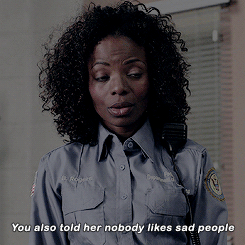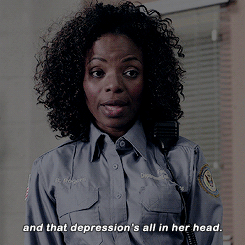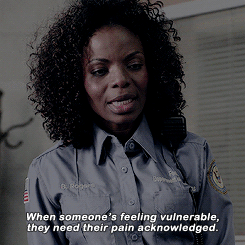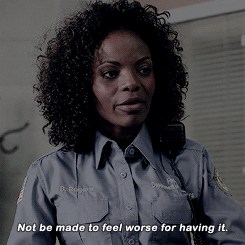10 Misconceptions of Mental Health
Mental illness carries an incredible negative stigma in our society today. Whether this stems from media commentary regarding individuals shooting and bombing our cities, serial killers, etc., or just an extreme lack of education and teaching in schools, mental illness continues to carry many misconceptions throughout the country.
The best way we can work together to change the stigma is to start with education. If it is too difficult to incorporate into daily curriculum in the educational institutions, why not start on media that youths primarily use as sources of entertainment? Here's a quick list of some common misconceptions:
1. Psychology means the study of the brain and behavior.
Psychology does not mean “the ability to read your mind and future.” Psychology, psychiatry, and psychics all have different roles in the workplace. Psychologists and psychiatrists may observe, evaluate, diagnose and treat patients, but a psychiatrist can prescribe medication. A psychic, however, is someone who has “powers” to read minds or the future, or serves as a medium for spirits.
If you are looking to deal and treat mental health problems, put your efforts into finding a psychologist or psychiatrist, not a psychic.
2. If you are super organized and avoid mess, this doesn’t mean you have OCD.
If you pride yourself in organization and it won’t interfere with your daily routine, chances are you do not suffer from OCD. Obsessive Compulsive Disorder is defined as excessive thoughts and repetitive behaviors that interfere with daily function. An example that is commonly used is someone having to scrub their hands with soap for (x) amount of time to ensure all germs are removed to the point they scrub off multiple layers of skin. This is repeated multiple times a day and interferes with daily functioning if their hands are not clean.
You’re more likely to have a little case of OCPD than OCD. Obsessive Compulsive Personality Disorder is defined as patterns of control, orderliness, and strict standards for rules.
3. Depression isn’t something that last two hours after bombing your midterm.
In order to be classified as depressive, symptoms must occur daily for over a two-week time frame.
4. Crazy, Psychopath, and Sociopath are completely different.
Next time you want to call a person a name for doing something you find irrational, make sure to classify it correctly before making him/her look like they might be violent or a potential threat to society. A great article highlights the difference in Psychology Today
https://www.psychologytoday.com/blog/wicked-deeds/201401/how-tell-sociopath-psychopath
5. While we’re at it: insane asylum and psychiatric wards are also very different institutions.
Insane asylums’ doors have long been shut down across the country due to dehumanizing and unsanitary living conditions.
Psychiatric hospitals and psychiatric wards in hospitals are geared towards helping more severe cases of mental illness for treatment. Saying someone belongs here perpetuates the social stigma of mental illness. Instead, reach out and try to help a person who may be suffering to potentially prevent them from finding his or her self there.
6. Mental illness is not contagious.
This should go without saying, but time and time again, uneducated individuals are so closed-minded that they actually believe this to be true.
7. Being prescribed medication to treat mental illnesses does not make someone less of person.
Like any illness (a simple cold, an infection, strep throat, etc), medication helps to alleviate symptoms caused by an illness in the body. Medication for mental illness works in the same manner to create a chemical balance in the brain.
8. Telling someone with anxiety to “calm down” is counterproductive.
Someone suffering from anxiety did not choose to have anxiety. Therefore, their thoughts can sometimes inhibit them from participating in certain events or can cause irrational fears. If someone has a panic attack or has severe anxiety and you do not know the feeling of having a billion negative scenarios flooding your mind about one simple thing, try to just be there for them and walk them through it.
9. Mental illness is not something you can “just get rid of” or “not think about."
10. Seeking help or openness to being helped by a professional means a person is sane enough to realize there is a problem.
Do not dehumanize a person for trying to better his or herself. They are taking a very difficult step to cope with something that they did not ask for. They recognize they have a problem and are open to help to deal, cope, and alleviate symptoms.
Those who refuse to acknowledge they show signs of mental illness are in denial about getting help, and defiant about mental illness's existence: this is the problem.























